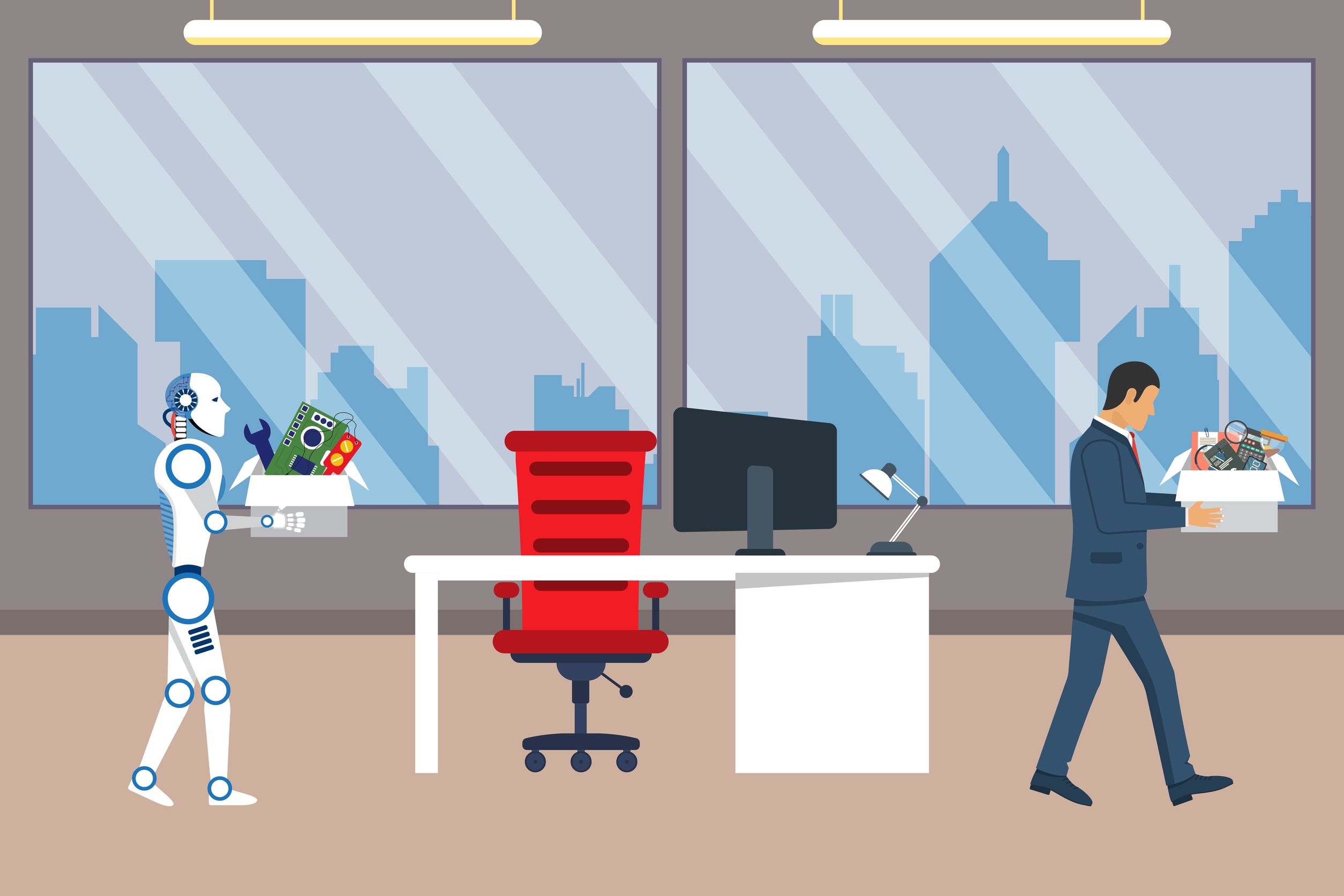Artificial Intelligence (AI) has become one of the most discussed topics in recent years. From self-driving cars to virtual assistants, AI has made its way into our daily lives. While some people see it as a threat that could potentially replace humans in various industries, others believe that it’s a revolutionary technology that will change the world for the better. In this blog post, we’ll delve into the different types of AI and explore whether or not it can truly replace human beings in certain roles. So buckle up and get ready to dive deep into the world of AI!
What is AI?
Artificial Intelligence, in simple terms, is the simulation of human intelligence processes by machines. These machines can perform tasks that typically require human cognition such as visual perception, speech recognition and decision-making.
AI technology is built upon algorithms which are created using large amounts of data. The machine then uses this algorithm to identify patterns and make decisions based on the information it has received. AI systems can learn from their experiences and improve themselves over time.
There are three types of AI: narrow or weak AI, general or strong AI and superhuman AI. Narrow AI focuses on performing specific tasks like recognizing faces or playing games while General/Strong AIs attempt to mimic human-level cognitive abilities. Superhuman AIs surpass humans in both intelligence and creativity.
While there are many benefits to using Artificial Intelligence such as increased efficiency, accuracy and productivity, concerns have also been raised regarding job loss due to automation of certain industries.
Despite its potential drawbacks however, it’s clear that we’ve only scratched the surface when it comes to understanding the capabilities of artificial intelligence technology.
What are the different types of AI?
Artificial intelligence is a vast field that encompasses various types of systems. Here are some of the different types of AI:
1. Reactive Machines: These machines can only react to information they receive from their environment, and they do not have the ability to form memories or use past experiences.
2. Limited Memory: This type of AI can look into its historical data and draw conclusions based on previous experiences.
3. Theory of Mind: A more advanced type of AI, which tries to understand human emotions and reactions by simulating them in its system, thus building empathy.
4. Self-Awareness: Currently just theoretical, this would be an AI capable of understanding itself as a separate entity with individual thoughts and beliefs.
5. Artificial General Intelligence (AGI): AGI represents an intelligent system capable of performing any intellectual task that a human being can perform.
There are various types of artificial intelligence systems each suited for specific tasks or applications; however, most current examples fall under reactive machines or limited memory categories because AGIs require much more development in terms of technology advancement before becoming possible practically.
The Pros and Cons of AI
Artificial intelligence is a rapidly growing field, and it has both pros and cons. One of the most significant advantages of AI is its ability to automate tedious tasks, freeing up humans to focus on more creative and complex work. With AI’s help, we can accomplish things faster than ever before.
Another potential benefit of AI is that it can help us solve some of humanity’s biggest problems. For example, by analyzing vast amounts of data quickly and accurately, researchers may be able to find new treatments for diseases or develop more efficient ways to produce clean energy.
However, there are also concerns about the role that AI will play in our future. One worry is that as machines become smarter and more capable, they will eventually surpass human intelligence altogether. This could lead to a world where robots control everything from our homes to our workplaces.
Another issue with AI is the potential for bias or discrimination in decision-making algorithms. Because these systems learn from past data sets – which themselves may have been biased – they risk perpetuating existing inequalities rather than creating a fairer society.
While there are undoubtedly many benefits associated with artificial intelligence technology, it’s essential that we proceed with caution so as not to unintentionally create new problems along the way.
Can AI replace the human?
Artificial Intelligence (AI) has been rapidly advancing in recent years, and the question on everyone’s mind is whether it can replace humans. While AI can perform certain tasks more efficiently than humans, there are many factors to consider before answering this question.
One of the main advantages of AI is that it can process large amounts of data faster than any human could ever do. This means that machines equipped with advanced algorithms can analyze data, identify patterns, and make predictions much quicker than a human analyst would. For instance, self-driving cars have been developed using machine learning techniques where they learn from real-life scenarios and become better at handling various situations over time.
However, despite its advantages, AI still lacks some essential qualities that only humans possess such as emotions and creativity. Humans have an innate ability to connect with others emotionally which allows them to provide comfort or support when needed. Additionally, humans also have imagination and creative problem solving abilities which are yet unmatched by any machine.
Another factor to consider is ethics. Machines lack empathy and moral judgement skills – characteristics that define humanity itself. In cases where ethical decisions need to be made like medical diagnosis or legal judgments , AI should not be relied upon entirely as it may lead to biased decisions based on incomplete data analysis.
In conclusion although Artificial Intelligence has come a long way in replacing certain aspects of human life like manual labor-intensive jobs or repetitive tasks; There are areas for improvement if we expect robots/AI systems capable enough for multitasking roles while maintaining high levels of accuracy without sacrificing ethical values or compromising our societal well-being .
Conclusion
Artificial Intelligence has come a long way and advanced significantly over the years. It has changed the way we live, work, and interact with technology. Its impact is undeniable, but whether it can replace humans entirely is still up for debate.
The truth is that AI can do many things better than humans – it’s faster, more accurate, and doesn’t get tired or make mistakes. However, there are still areas where human intelligence outperforms AI.
For example, empathy and emotional intelligence are uniquely human qualities that cannot be replicated by machines. Creativity and critical thinking skills are also essential traits that require a complex understanding of various concepts to develop ideas that produce value.
Therefore, while AI might be able to automate certain jobs in the future, it will never replace the creativity or ingenuity of human beings completely.
Ultimately we should focus on embracing this new wave of technology rather than fearing it because when used correctly and responsibly; AI can bring about enormous benefits for everyone involved in society.





More Stories
How to Use TopFollow APK to Grow Your Followers Naturally? A Simple Guide for Beginners
What Are the Best Omegle Replacements? A Friendly Guide to Chat Random Text Safely and Easily
Where’s the Best Place to Buy Backlinks in 2025? A Friendly Guide with Marketing 1 on 1 Tips